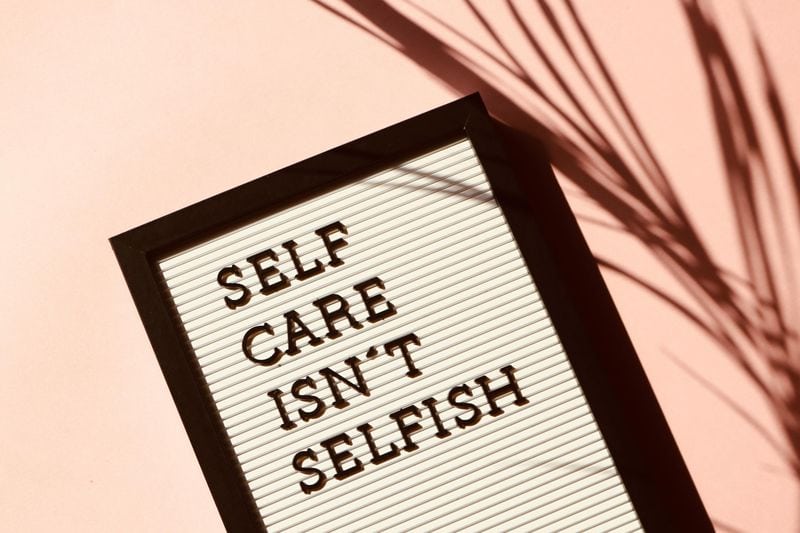Breaking up is tough, and many of us think we need that final conversation to move on. But what if closure isn’t all it’s cracked up to be?
Sometimes, seeking answers from an ex can actually make healing harder. Instead of chasing that perfect goodbye, there are better ways to find peace within yourself.
1. Reopening Wounds Hurts More Than It Helps
Meeting up with an ex to get ‘closure’ often rips off healing scabs. You might think you’re ready for that final talk, but hearing their side can trigger feelings you thought were gone.
Those fresh emotions can set your healing back by weeks or months. The pain you carefully packed away comes flooding back, leaving you to start the grieving process all over again.
Your mind has a way of protecting itself by naturally closing chapters over time. Sometimes the kindest thing you can do is let that natural process work without interference.
2. Your Ex’s Answers Probably Won’t Satisfy You
Truth bomb: even when exes try to explain themselves, their answers rarely give us the peace we’re looking for. You might hope for a clear explanation that makes everything make sense, but people often don’t fully understand their own actions.
What feels like an important question to you might seem trivial to them. Their perspective on what went wrong could be completely different from yours.
Sometimes the explanation you receive is worse than the stories you’ve told yourself. The fantasy of closure is often better than its reality.
3. Focusing Forward Beats Looking Back
Energy flows where attention goes. Every minute spent analyzing your past relationship is time not invested in your future happiness. While reflection has its place, obsessing over closure keeps you emotionally tethered to someone you’re trying to move beyond.
Your brain has limited daily decision-making power. Using that mental energy to build something new serves you better than dissecting something that’s over.
The most successful post-breakup stories come from people who channeled their energy into new hobbies, friendships, and personal growth rather than seeking perfect understanding of what went wrong.
4. Self-Closure Builds Emotional Muscle
Creating your own closure is like emotional weightlifting – challenging but strengthening. When you rely on yourself rather than an ex to find peace, you build resilience that serves all future relationships.
Many therapists actually recommend journaling your own closure letter rather than sending one. This exercise helps process feelings without depending on someone else’s response.
The skill of finding internal resolution transfers to other life areas too. Learning to close chapters yourself means you’ll handle future disappointments – from job rejections to friendships that fade – with greater emotional agility.
5. Memory Plays Tricks During Closure Talks
Face-to-face closure conversations often become battles over whose memory is correct. “That’s not how it happened” becomes the frustrating chorus when two people recall the same events differently.
Memory isn’t a perfect recording – it’s influenced by emotions, perspective, and time. Your ex genuinely might remember situations completely differently than you do.
Arguing about whose version is right rarely leads to healing. Instead, accepting that two people can experience the same relationship differently becomes its own form of closure – one that doesn’t require their participation.
6. Closure Conversations Can Lead to Backsliding
Meeting for that final talk carries a hidden risk – rekindling feelings you’re trying to extinguish. The familiar scent of their perfume or cologne, inside jokes that still make you laugh, or simple physical proximity can weaken your resolve.
Many people end up in confusing situations after closure talks, including “one last time” intimacy or false reconciliations. These setbacks often lead to repeated breakups, each more painful than the last.
Clean breaks, while initially more painful, typically lead to faster and more complete healing than relationships that repeatedly open and close like revolving doors.
7. Your Growth Doesn’t Require Their Understanding
Imagine planting a garden. Does each seed need to understand why you placed it where you did for flowers to bloom? Similarly, your personal growth doesn’t require your ex’s acknowledgment or understanding.
Many people discover their most significant personal development happens after relationships end. Without the compromise required in partnerships, you can explore who you are without accommodation.
The lessons you learn from a relationship remain valid whether your ex recognizes them or not. Your growth is yours alone – a private victory that doesn’t need external validation to matter.
8. Time Heals More Effectively Than Conversations
Have you noticed how problems that seemed enormous a year ago barely register now? Time has a remarkable way of shrinking emotional mountains into manageable molehills without any special effort on your part.
The raw heartbreak that makes you seek closure typically softens naturally with passing months. What feels unbearable in week one becomes background noise by month six.
Rather than forcing closure through potentially painful conversations, allowing time to work its gradual magic often leads to the same result with less drama. Your future self might thank you for simply letting time do what it does best.
9. Closure Is Often Just Another Form of Control
The desperate need for closure sometimes masks a deeper desire to maintain connection with someone who’s chosen to leave. By seeking that final conversation, we’re often trying to control how the story ends rather than accepting its natural conclusion.
Relationships involve two independent people with separate choices. When one person decides to exit, demanding closure can become a subtle way of refusing to respect their decision.
True peace comes from accepting what we cannot control – including other people’s choices and feelings. This acceptance, while difficult, represents genuine emotional freedom rather than the illusion of closure.
10. Creating Your Own Ending Empowers You
Storytellers know that endings define how we feel about the entire story. When you write your own ending to a relationship story, you reclaim narrative power.
Rather than letting someone else’s words or actions determine how you view what happened, you can choose which lessons to carry forward. Maybe the relationship taught you about your strengths, your boundaries, or what you need in future partnerships.
The most healing closure comes from saying, “This is what this chapter meant to me, and this is how I’m better because of it.” That kind of ending never requires anyone’s permission but your own.











